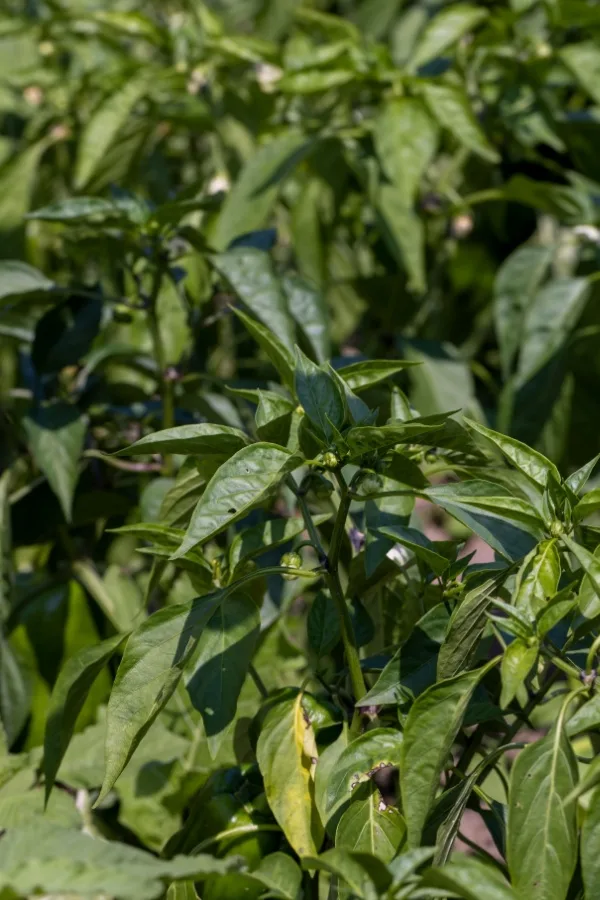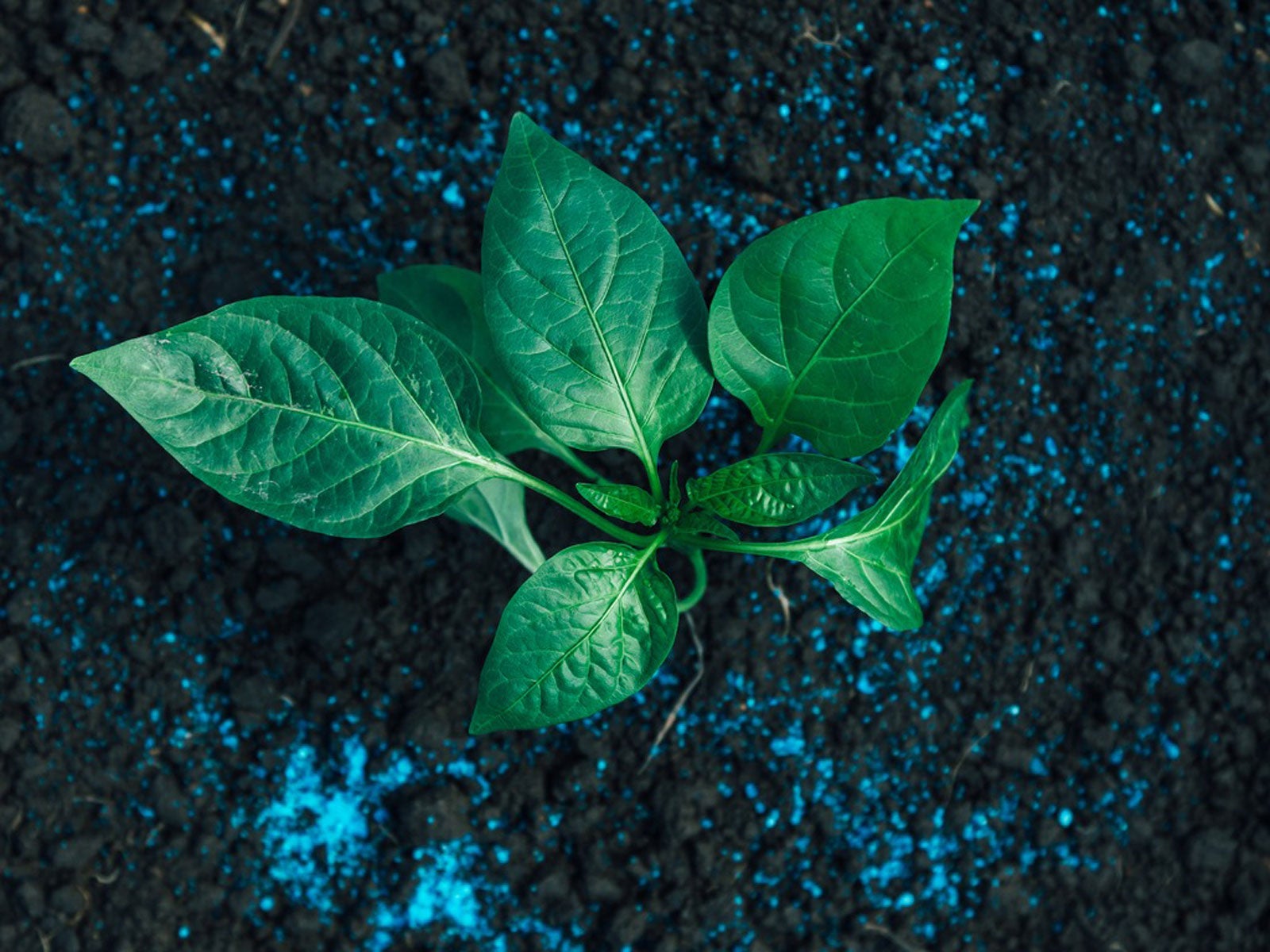Organic Vs. Synthetic Fertilizers: Which Is Best for Nurturing Healthy Pepper Plants?
In the realm of nurturing healthy pepper plants, the option between synthetic and organic fertilizers stands as a pivotal choice with far-ranging ramifications. While both choices aim to offer vital nutrients to support plant growth, the nuances of their influence on the dirt, plant health and wellness, and the atmosphere stimulate a dispute that mirrors throughout the gardening neighborhood. Recognizing the distinctive benefits and possible mistakes of each plant food kind is vital for pepper cultivators seeking to optimize their returns while preserving an eco-conscious and lasting strategy.
Advantages of Organic Plant Foods
Organic plant foods offer a sustainable and environmentally-friendly strategy to beneficial pepper plants, giving crucial nutrients without the usage of synthetic chemicals. These all-natural fertilizers are originated from organic sources such as garden compost, manure, bone meal, and algae, advertising soil wellness and biodiversity. Unlike artificial fertilizers, natural choices launch nutrients gradually, ensuring a consistent and well balanced supply for pepper plants to grow.
One considerable advantage of organic plant foods is their capability to boost soil structure and water retention. By boosting soil health and wellness, natural fertilizers promote valuable microbial activity, which helps in nutrient uptake by pepper plants. In addition, organic fertilizers minimize the threat of chemical run-off, protecting water sources from air pollution and protecting the atmosphere.
Moreover, organic plant foods add to lasting soil fertility by promoting the growth of helpful dirt microorganisms. These organisms help break down organic matter, launching nutrients in a kind that is conveniently accessible to pepper plants. best fertilizers for peppers. By fostering a healthy dirt ecosystem, organic plant foods sustain lasting pepper cultivation practices that benefit both plants and the atmosphere
Downsides of Synthetic Plant Foods
Artificial fertilizers, unlike their organic equivalents, pose different disadvantages when utilized to nourish pepper plants, affecting both plant health and wellness and ecological sustainability. One major disadvantage of artificial fertilizers is their tendency to seep nutrients from the soil promptly. This rapid leaching can bring about nutrition inequalities in the soil, creating plants to deal with poisonings or deficiencies. Furthermore, artificial plant foods can harm useful dirt microorganisms, such as earthworms and helpful germs, interrupting the dirt environment's equilibrium.
Additionally, the overuse of synthetic fertilizers can add to water pollution. Excess fertilizers not absorbed by plants can remove right into water bodies, causing eutrophication, where algae flowers diminish oxygen levels in the water, harming marine life. Artificial plant foods are generally obtained from non-renewable sources, such as fossil fuels, adding to carbon discharges and environmental destruction during their manufacturing.
Nutrient Absorption Comparison
When comparing artificial and natural fertilizers in terms of nutrient absorption, organic fertilizers have the advantage of providing an extra balanced and slow-release source of nutrients. Organic fertilizers include a range of macro and trace elements my link that are not just valuable for the plants but also promote healthy soil microbial activity, which aids in nutrient uptake.
Additionally, organic fertilizers improve soil structure and water retention capability, enabling pepper plants to gain access to nutrients a lot more effectively. This better dirt top quality promotes origin growth, enabling better nutrient absorption. Synthetic fertilizers, although originally boosting plant growth due to their high nutrient concentrations, might impede lasting nutrient absorption by derogatory dirt wellness with time.
Environmental Impact Considerations

On the various other hand, synthetic fertilizers, although frequently even more immediately readily available and focused to plants, can have destructive impacts on the atmosphere if not used appropriately (best fertilizers for peppers). Their production calls for high power inputs, resulting in greenhouse gas emissions and contributing to environment modification. Furthermore, the drainage of excess artificial plant foods can infect water sources, bring about eutrophication and hurting marine environments.
Best Fertilizer Practices for Peppers
When feeding pepper plants, optimizing nutrient uptake and lessening ecological impact are essential factors to consider. To achieve this, it is vital to follow finest fertilizer techniques tailored to the certain demands of pepper plants. One vital practice is to execute a dirt examination prior to using any plant my latest blog post foods. This examination can identify the pH level of the dirt and determine any nutrient shortages, leading you in selecting the most appropriate fertilizer formulation.
An additional vital practice is to fertilize pepper plants at the right time. Normally, peppers gain from getting plant food at planting and after that once again when they begin to blossom. Over-fertilizing can cause vitamins and mineral inequalities and hurt the plants, so it is important to follow advised application prices.
Furthermore, choosing a well balanced plant food with an NPK ratio that matches pepper plants' needs is essential. Organic fertilizers, such as garden compost or manure, can be exceptional choices as they he said launch nutrients slowly and improve dirt framework in time. Synthetic fertilizers can give a fast nutrient boost when required. Eventually, integrating natural and synthetic fertilizers judiciously can aid support healthy pepper plants while decreasing ecological effect.
Verdict

Organic plant foods use an environmentally-friendly and lasting approach to nourishing pepper plants, giving important nutrients without the usage of artificial chemicals. Unlike synthetic fertilizers, natural alternatives launch nutrients slowly, guaranteeing a constant and balanced supply for pepper plants to grow.
Artificial fertilizers, in contrast to their organic counterparts, posture different downsides when made use of to nourish pepper plants, affecting both plant wellness and ecological sustainability. When comparing organic and synthetic fertilizers in terms of nutrient absorption, natural plant foods have the benefit of giving a more balanced and slow-release source of nutrients.Moreover, natural plant foods boost dirt framework and water retention capacity, allowing pepper plants to access nutrients much more effectively.